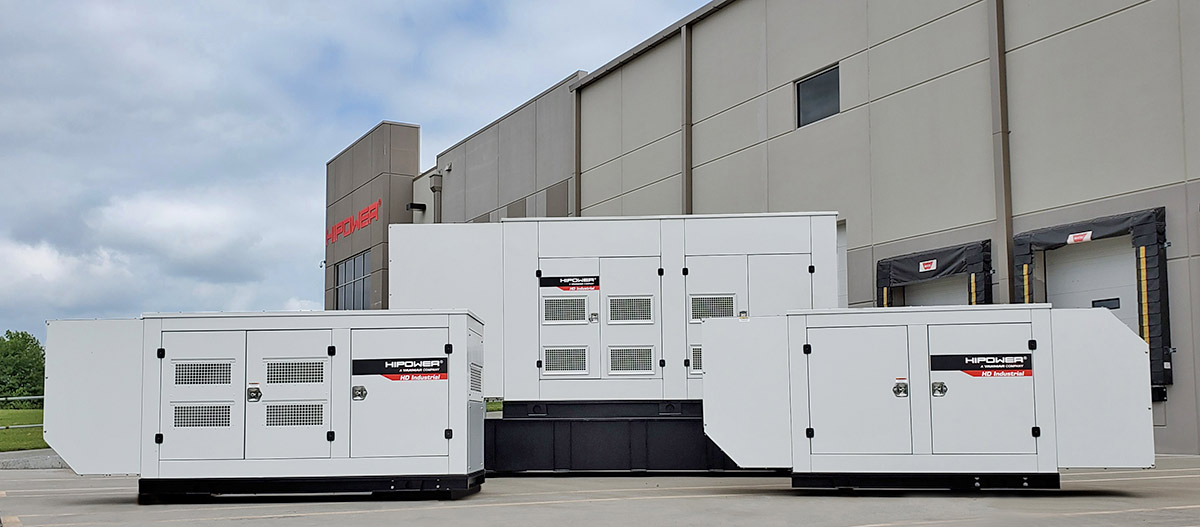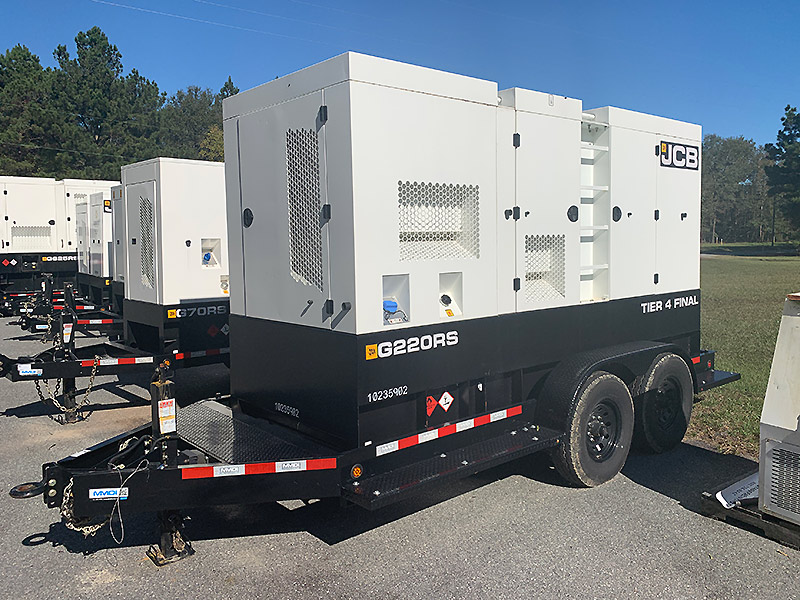Business facilities must be functional regardless of weather conditions and power outages. This is why you need a commercial generator. Generators are critical for powering shop floors, keeping cash registers active at retail locations, and preserving a restaurant’s food in refrigerators and freezers. Without the backup power they provide, businesses shut down and face potentially severe losses.
Each business is unique, and so are their power requirements. For example, two identical commercial generators will face different demands depending on business needs.
- Do they need to maintain full business operations or a minimal set of services?
- In what type of environment are they installed?
- How long do they need to run?
The answers to these questions dictate a commercial generator’s power requirements.
When you consider how to size a generator for a commercial building, you’ll typically find a watts- or kilowatts-per-hour calculator. Perhaps a safety margin is added to the calculator’s findings. Knowing how to properly size a generator is important, but these calculations don’t paint a complete picture. There’s a lot more to consider in commercial generator sizing.
Without a generator application study, you may lock your business into a backup strategy with insufficient power. Go beyond the calculator, and you’ll discover why generator application studies are vital to business operations.
What Is a Generator Application Study, and When Do I Need One?
A generator application study is a more advanced analysis of a business’s backup requirements. Starting with a power system model, the study uses simulation data to estimate consumption requirements accurately.
Among the considerations are the type of generator, its installation, and its placement. An interconnection study weighs control engineering considerations. Finally, a reliability study gives you peace of mind that your commercial generator will perform to expectations when needed.
The initial planning stage is an excellent time to complete a generator application study. However, you should conduct it after completing system upgrades. This study also offers a perfect way to perform regulatory compliance checks. It shows that your business can avoid loss in a power disaster, with business operations continuing throughout the emergency.
What Are the Benefits of Generator Application Studies?
Generator application studies help prevent system inefficiencies and ensure the reliability of your power backup system. The detailed nature makes it easy to select a commercial generator that’s the right size and type for your needs. In addition, they help reduce operational costs by providing you with optimized fuel usage plans.
Generator studies can also help maintain safety in your workplace, as they ensure proper power loads and secure installations. Hazard prevention and regulatory compliance are prominent concerns when working with large power sources like commercial generators. With an application study, though, you remove the guesswork around safety compliance.
How Application Studies Are Performed
A generator application study’s comprehensive methodology ensures nothing is left to chance. There are multiple steps to the process:
Data collection
Data collection provides the foundation for the study. Engineers gather in-depth information on many factors, including load profiles, fuel availability, site constraints, and environmental considerations. Depending on the information needed, they may use on-site surveys, historical data analysis, and consultations with experts.
Modeling and simulation
Next, advanced simulation tools provide a rigorous modeling process. Simulations look at generator behavior under multiple conditions, such as load variations. This modeling and simulation phase helps identify any challenges to a successful implementation while accurately predicting the generator’s future performance.
Generator selection
With a solid understanding of power requirements and expected performance, the study moves on to the generator selection phase. Choosing the appropriate generator comes after a detailed analysis of the size, type, fuel type, and emission standards required for the project. Of course, cost factors, special requirements, and regulatory compliance are other essential considerations in the selection process.
Existing systems integration
The study’s integration phase performs electrical compatibility checks and synchronization planning. These steps illuminate potential issues in integrating the generator into the existing infrastructure. It’s a crucial step for achieving a harmonious and trouble-free implementation.
Testing and commissioning
The final phase of the study involves placing the selected generator through rigorous testing, including factory, on-site, and load tests. Testing ensures that project specifications and requirements are met. With the study complete, you can be confident of the generator’s performance and reliability when called into action.
What Are the Challenges of Generator Application Studies?
It’s normal to face challenges during a generator application study. For instance, sizing problems often arise when placing the generator and the required equipment. Environmental constraints come into play, too, as you must consider guidelines around the fuel the generator uses, along with exhaust and ventilation issues. Regulatory compliance is an overall factor that often shapes implementation plans.
These and other challenges show the value of an application study — and the weakness of relying solely on generator energy calculators
You can calculate the proper amount of power needed for any given application and arrive at something that should work. However, the calculators don’t take into account the challenges above. Calculators also don’t simulate real-world usage scenarios, leaving you unsure if the generator will power your business in an emergency.
Application study hurdles are overcome with robust data collection, advanced software, other technologies, careful planning, and adherence to international standards. A generator application study uses all these tools to ensure the chosen solution meets your business needs.
With rapidly evolving technology, the studies are only getting better. Smart control systems, hybrid solutions, and AI-based monitoring are among the innovations that make application studies more accurate. These advancements are revolutionizing efficiency; they’re also reducing emissions and enabling integration with smart grids.
Get a Generator Application Study from Global Power Supply
Global Power Supply offers industry-leading generator application studies. Our application study services combine a detailed examination of your existing power system with advanced technologies to identify the most suitable generator for your needs. Beyond backup power calculations, our studies consider peak sharing and continuous power supply applications to enhance your power system’s efficiency.
Our engineers study advanced modeling and simulation data, considering fuel type, size, power, existing infrastructure, accessibility, and more. Based on simulation results, Global Power Supply will provide specific, actionable recommendations for integrating generator sets into your infrastructure. To learn more, visit our generator application study page and request a study today.


